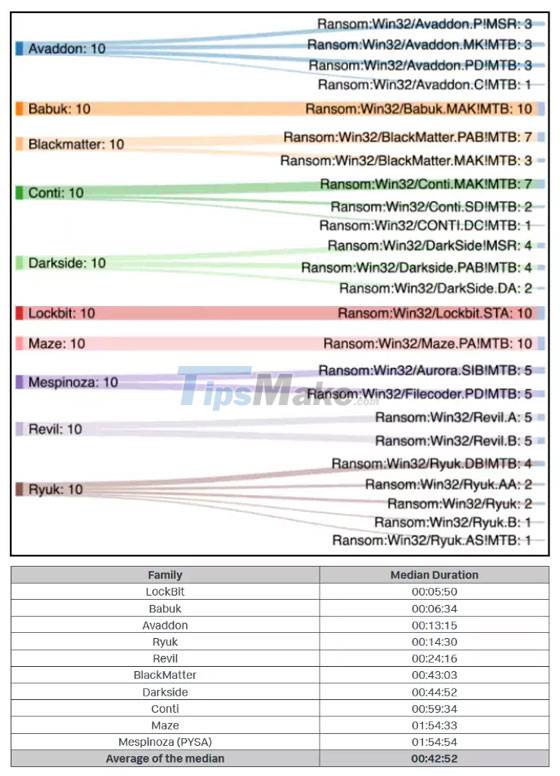This is the world's fastest ransomware, encrypting 53GB of data in just over 4 minutes
When a ransomware cyber attack occurs, time to detect and prevent damage is critical to helping IT administrators and cybersecurity teams protect corporate data. So, when something goes wrong, how much time does the cybersecurity team have to react and offer timely solutions?
To answer this problem, the Splunk site performed a test with a total of 400 times to check the file encryption speed of 10 different ransomware spreading on the internet. Ransomware tested includes REvil , Darkside, Babuk, Maze, LockBit and several other ransomware on both Windows 10 and Windows Server 2019 editions.
In this test, the Splunk site used 53GB of data including 98,561 different files including pdf, excel and word documents.

As a result, LockBit took the lead with the ability to encrypt 53GB of data on Windows Server in just 4 minutes and 9 seconds. LockBit is malicious ransomware designed to encrypt data detected by the MalwareHunterTeam team.
In second place is Ransomwar Babuk, the first malware discovered in 2021, whose goal is to steal companies' data and blackmail them.
The Avaddon ransomware came in third place in this test. This malicious code will perform DDoS attacks to take down the website or computer network of the victims until the victims negotiate a ransom.